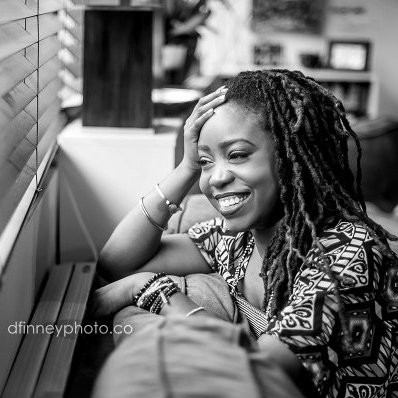
"What's the good of getting a MacArthur Genius grant if you can't go and write a comic book for Marvel?" famed author Ta-Nehisi Coates asked NPR. After winning a National Book Award for his second book, "Between the World and Me," no one anticipated that this would be his next move.
“In my heart, I’m a comic book writer, I am -- and I don’t really see that as a conflict with the kind of essay-writing I do with the Atlantic,” he continued. “There are things that people consider to be genius, and then there are things that deep in my heart I've always believed to be genius.”
And, considering that Black Panther is now the bestselling comic book of the year, this truly was an act of genius. The first issue in the series -- a reboot of the 1966 comic of the same name, widely credited with introducing the first black superhero -- was published by Marvel Comics on April 6. The comic sold more than a quarter-million copies within a month.
The Black Panther was ahead of his time
Coates' Black Panther storyline, "A Nation Under Our Feet," sees T'Challa, the Black Panther, face an uprising in his kingdom of Wakanda created by a superhuman terrorist organization called the People.
https://www.youtube.com/watch?v=WVqAnQe_xGw&feature=youtu.be
T’challa is one part king and one part a superhero. Best known for his superhuman strength and intellect, T’Challa was the first mainstream black superhero to grace the pages of a graphic novel back in 1966, just a few months before the Black Panther political party came on the scene.
“I don't think people should lose sight of what it meant to create an African, a black superhero in the 1960s,” Coates told NPR. “It happens within the midst of the civil rights movement, but I think if you search pop culture at that particular time for somebody like the Black Panther, you would come up really short. If you compare it to other areas of other pop culture, Marvel was probably pretty much ahead.”
Marvel pushes for more diverse characters and creators
Marvel's Black Panther announcement follows concern from many fans over the lack of diversity in the comic giant's forthcoming All-New, All-Different publishing relaunch, in terms of both race and sexual identity.
Like virtually every other form of entertainment, the world of comic books has increasingly grappled with issues of diversity, especially over the last few years as social media and Internet platforms amplified the voices of minority creators and critics.
“Diversity of every sort — racial diversity, gender diversity, acknowledging minority sexualities — is experiencing an explosion of recognition and representation in comics,” comic creator C. Spike Trotman told Wired. However, even as the faces on the pages of popular comic books grew more diverse, the editors and creators of mainstream comics remained overwhelming white.
Diverse storytellers create better stories
While some may consider Black Panther a marketing ploy by Marvel, supporters are applauding the company for taking steps to rectify diversity issues. They believe that bringing in a wider range of voices is simply a way of correcting a fundamental creative imbalance, one that permeates the largely white, male world of mainstream comics.
Diverse storytellers create better, more honest and more engaging stories. “Diversity is legitimacy. It’s sincerity. It’s truthiness, to borrow a certain expression,” Trotman continued. “Diverse storytellers mean diverse personal experiences being brought to the table, and more honest depictions of those experiences on the page in fiction. It’s not impossible for a creator to write about an experience they’ve never had; that would be a silly thing to say. But Cis Hetero White Male isn’t the default mode of human. Experiences influence creativity, and there needs to be more than one set of experiences being reflected on the page.”
“I would like Black Panther to be some kid’s Spiderman,” Coates said. “Comic book heroes are like our mythology, they're our Greek gods. And it's in our pantheon that the only people with power, the only people with weight in our pantheon are straight, white dudes — that says something about how we imagine ourselves.”
“I think diversity is a storytelling imperative,” he added. “If you're not at least grappling with diversity, then you're not depicting the world. And while the world of comic books is not literally the true world, why would there not be gay superheroes? Why not?”
Black Panther will become Marvel's fourth solo title featuring a black lead, following Sam Wilson, Captain America, the Miles Morales Spider-Man and the new Blade series. Additionally, the Devil Dinosaur & Moon Girl series features an African-American co-lead, and the company's new Totally Awesome Hulk is Korean-American.
Black Panther’s comic book relaunch this year precedes the character's movie debut in next year's "Captain America: Civil War." A stand-alone Black Panther movie will follow in 2018.
Images courtesy of Marvel

Joi M. Sears is the Founder and Creative Director of Free People International, a social enterprise which specializes in offering creative solutions to the world's biggest social, environmental and economic challenges through the arts, design thinking and social innovation.














